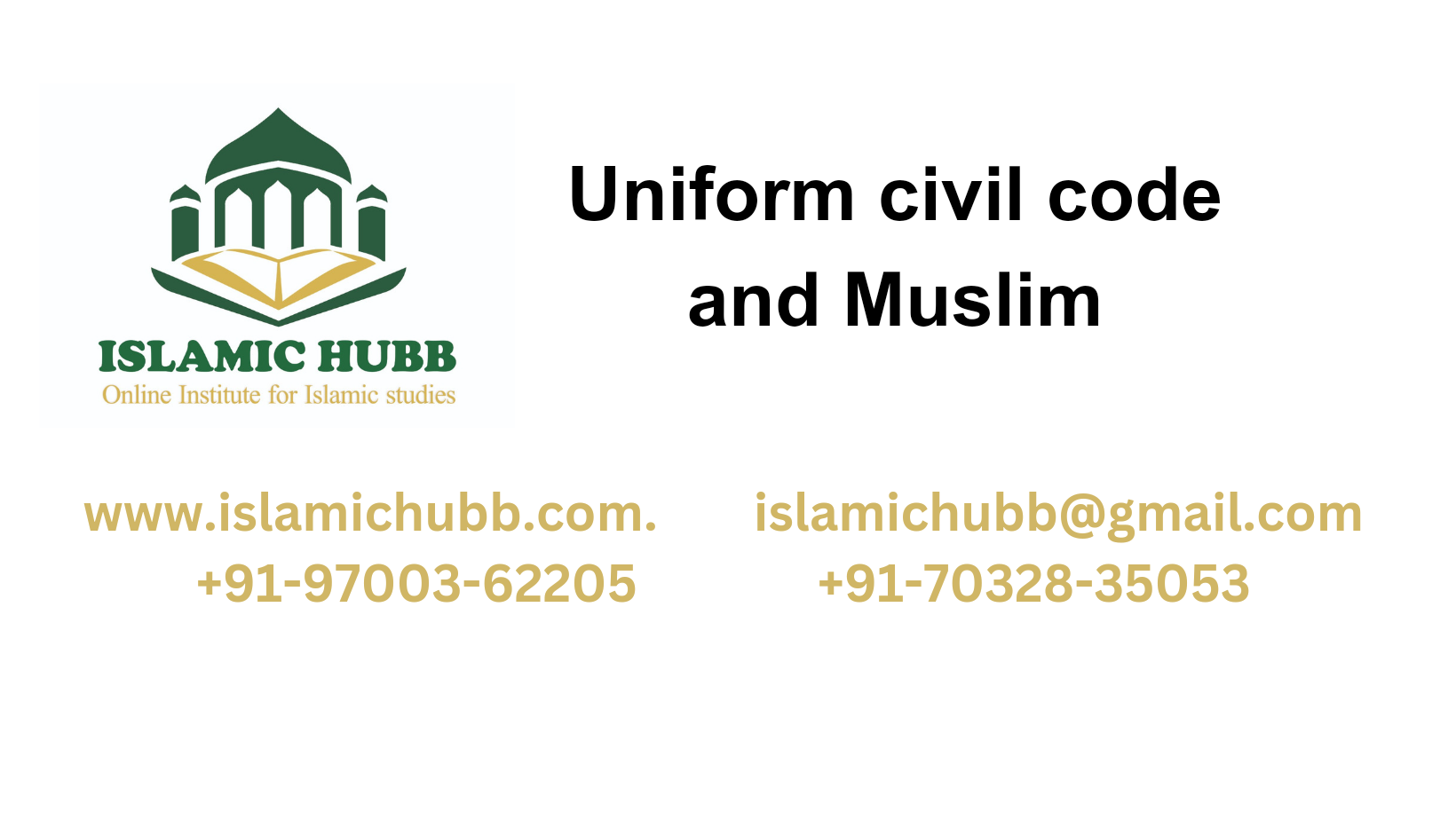Uniform Civil Code and Muslims
By: Mufti Mohammed Kafeel Ahmed
Director ISLAMIC HUBB
Today, throughout India, there is a discussion being led by Muslim leaders to send their opinion to the Law Commission of India against the Uniform Civil Code.
In simple words, the Uniform Civil Code means that if, God forbid, this law is implemented, then if an Indian goes to court for personal matters, issues will not be governed by his/her religious or tribal laws. Currently, family matters are handled according to their respective religious or tribal laws.
Along with this, the court will reject the decisions of Muslim courts or Shariah authorities in their personal matters.
A person goes to court only when there is a dispute or conflict. Those who follow Islamic law, if they seek guidance from scholars and act upon the legal method determined by them in the case of a dispute, there will be no question on the basis of freedom.
The real disagreement arises when someone refuses to accept the Sharia verdict and knocks on the court’s door.
Essentially, the issue is rooted in a matter of individual Muslim’s temperament, and it should be understood that the Indian government did not create the law against personal laws for any baseless reason, but as a result of the practical shortcomings found within the muslims.
For instance, suppose a woman (it’s better to imagine your own sister for understanding) comes and says, ‘My husband has given me three divorces, but now we both want to live together.’
In such a case, the Mufti is obligated to issue a fatwa according to Islamic law, and write: “Now, living together is not possible after three divorces. If you want to be together, marry someone else and lead your life. If, for any reason, the second marriage also ends, only then she can remarry with the first husband; otherwise, it is not allowed.” This fatwa is absolutely correct and should also be in accordance with human nature.
Why is it correct? We can discuss about it later, but the issue is that neither the husband nor the wife was informed before marriage that there is no need to give talaq three times; even one divorce is sufficient for separation. So, this happend due to their lack of knowledge.
Now, questions like how can that woman marry someone else? Who will marry her? What about her children? Just thinking about these makes one shudder.
And this ‘Halala’ term, both in its literal sense and its internal process, has become prevalent, and its unlawful use has been practiced by some individuals, which further complicates the matter.
In the same way, in inheritance, sisters have a determined share upon the father’s death. However, it is not followed and not instilled through childhood upbringing. Therefore, some sisters are deprived in receiving their share, or they obtain it through legal means from the court.
The purpose of this article is not to endorse or support the UCC; rather, it aims to awaken the conscience of Muslims that Islam is not merely a theoretical concept; it is a way of thinking and acting. Its continuity will only be possible through thought and action.
Today, if we are not practicing Islam, then Islam is not threatened by such laws but from us.
The leaders of the Muslim community are urged to establish a well-organized, profound, and impactful system of religious education for all Muslim people, regardless of their age, profession or field, Another important aspect is to prepare Muslim scholars in a way that they can present Islam in the correct manner, going beyond narrow-mindedness and traditional approaches that lead to ignorance of Islamic boundaries. These scholars should be able to present Islam in a way that adheres to its true essence and teachings.
Now, The time has come for all Muslims to embrace the legitimate progress of the era and, through their actions, reaffirm the universality and perpetuity of Islam. Muslim scholars should, with their profound knowledge, refute erroneous theories and ideas. May Allah Almighty grant us the correct understanding.
Aameen





Pray at Home
Ii